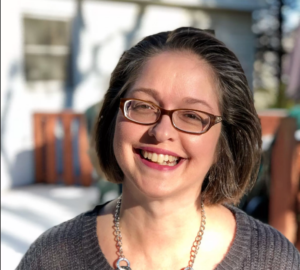Did you know that Hagar, the Egyptian slave woman of Sarai and Abram, is the only person in the Old Testament to assign a name to God — a name God honored?
Usually, it is God who tells us both who we are and who he is. He gives names to people as a way of telling us what he plans through us. And he gives himself names as a way of helping us know who he is for us. But in the story told in Genesis 16, Hagar is the one who names God. He is El Roi — The God Who Sees Me. Adrian Rogers says El Roi is the God of sympathy, this beautiful, grace-filled God Who Sees Us in our plight and sits with us in our pain.
Hagar’s story reminds us that God does not always or even usually change our circumstances. He isn’t a “fixer.” Her story teaches us, too, that God won’t tell us lies to make us feel better. He tells Hagar her son will be a “wild donkey of a man,” a fighter. He also tells her she’ll have to go back into the dysfunctional household she’d just fled. There would be no running away from her problems. There is no “It’ll be okay,” in her story, no glossing over the hard parts or skipping to the happy ending.
What Hagar gets instead is God, a fact that becomes its own kind of miracle. She gets a glimpse into who he is for her, who he will be whatever else happens. And somehow by naming God and discovering in his character that she was not invisible to him — that the things on her heart were on his, too — she discovered his Enoughness. He was Enough. And that fact was enough, or more than, to know this God Who Sees, Who Knows, Who Will Sit With Us In Our Pain.
To discover God revealed as El Roi was miraculously enough to birth hope into the soul of a desperate woman sitting in a barren desert. And the hope Hagar found in that desert traveled back with her into very imperfect circumstances, into a very hard relationship with a master who would lash out again and eventually send her packing … again. But for that day, somehow against all logic, Hagar could return to her life bearing hope. Which is to say that hope was not found in her circumstances. Hope was found in a Person.
Hope was — is — the property of the God Who Sees Us.
Hear that again: hope is not found in our circumstances. Hope is found in a Person. And for us who live on this side of the resurrection, hope is found in Jesus, who knows our pain, who has carried our diseases, who sees us …
What if the same hope Hagar bore back into Abram’s house became the hope that sustained him while he waited for his elderly wife to become miraculously pregnant? Is it possible that the hope Abram (who would become Abraham) found was actually birthed out there in the desert in a lonely moment when a young woman discovered that God sees … that God knows … that God had not abandoned her? It is possible that Abraham’s hope was incubated in a person who chose to focus not on her pain but on the One who is Lord over it?
Is it possible that when Paul wrote so eloquently about Abraham’s hope, he was actually writing about a second-hand hope that was first owned by Hagar?
Even when there was no reason for hope, Abraham kept hoping—believing that he would become the father of many nations. For God had said to him, “That’s how many descendants you will have!” And Abraham’s faith did not weaken, even though, at about 100 years of age, he figured his body was as good as dead—and so was Sarah’s womb. Abraham never wavered in believing God’s promise. In fact, his faith grew stronger, and in this he brought glory to God. He was fully convinced that God is able to do whatever he promises. — Romans 4:18-21, NLT
Even when there was no reason for hope, Abraham hoped. And what if? Just what if he was infected by Hagar, the hope-carrier?
Which means hope travels. Which means you and I can become hope-carriers, too. In our own hard season, when we are living in some kind of virus-inspired desert, we can gaze less on this crisis we’re in and more on the God Who Sees Us, and find our hope there just as surely as Hagar did. And like her, we can walk into our circumstances with no guarantee except that God sees, God knows, God will not abandon us. And like her, we can place our hope there and let it carry us just as surely as we carry it.
May you be blessed this week to become a hope-carrier. May you breed hope in your home, in your conversations, in your own spirit. May you infect others with hope enough to keep them moving beyond the moment and toward God’s purposes. And may you pray hope into our world, believing with other great hope-carriers that if God sees and God knows and God is with us, then that is enough.
Friends, hope travels. May it travel with you this week.








